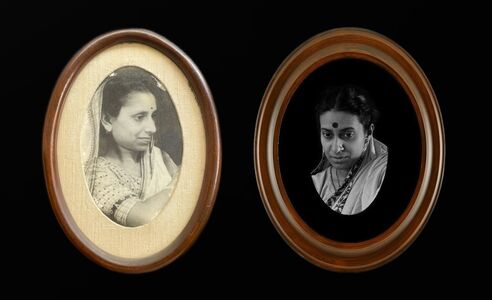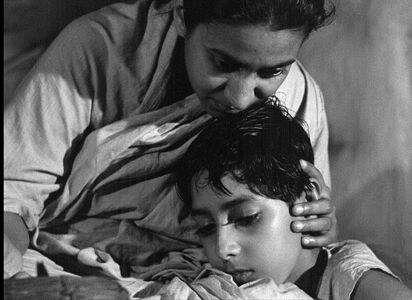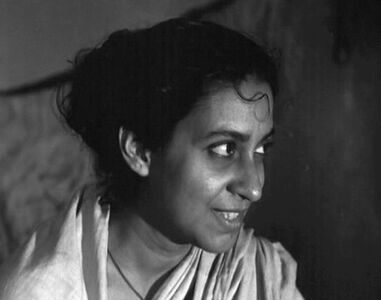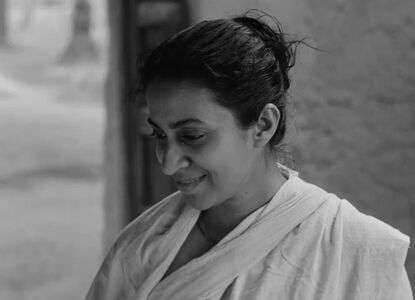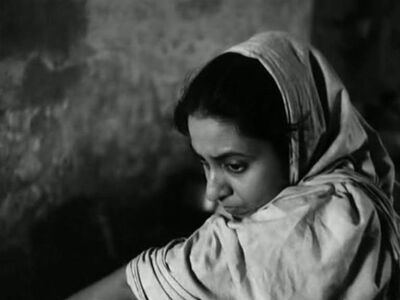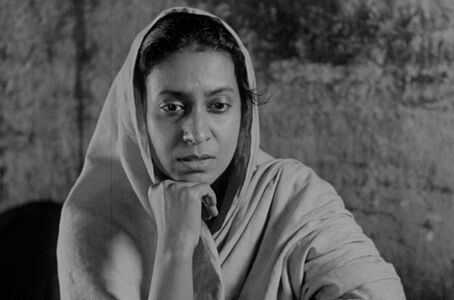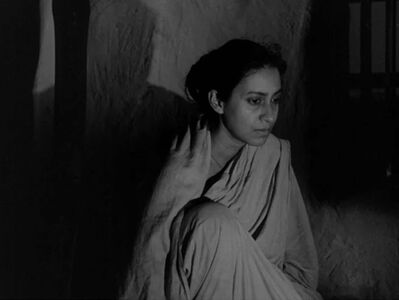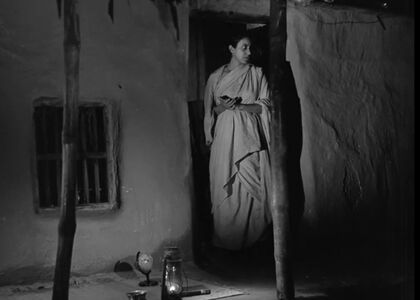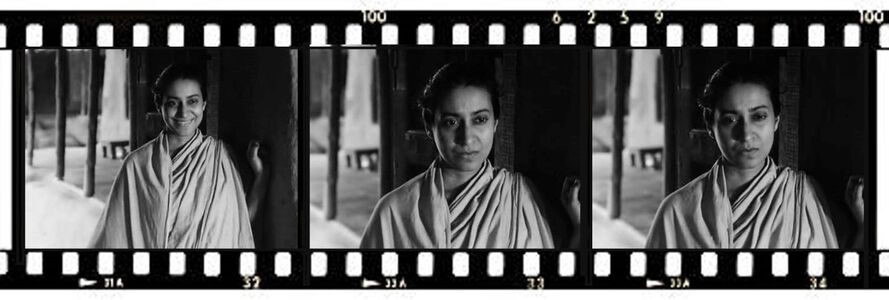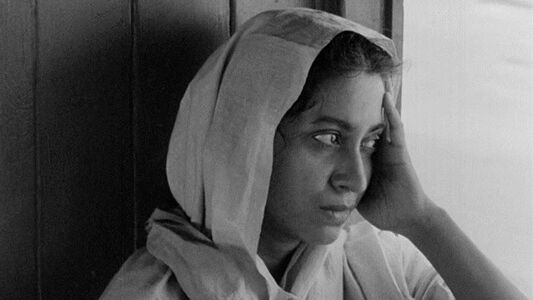The "Apu Trilogy" is a beautiful, moving, and humanistic masterwork of world cinema, and every time I see it, I am reminded of film as an art form. "Pather Panchali," "Aparajito," and "The World of Apu" are all works of great beauty and emotional power. I love this cinepoem because of its lyrical cinematography, mesmerizing music, and compelling characters, which combine to create an unforgettable portrayal of the sweep of life from childhood to adolescence to marriage. Taken together, the three movies form an almost seamless whole, creating an effect much like the memory of a life lived. Yet each film has its own arc that's aesthetically satisfying.
For me Aparajito is the most poetic and powerful. I have a special soft corner for Sarbajaya portrayed by Karuna Banerjee, as I think my mother had some resemblance to her, whose name was also Karuna. She is a picture of love, compassion and forgiveness part of our daily lives.
I have always thought of this trilogy not so much as the story of Apu but rather as the story of Apu's relationship with the three women who seem to have had the most impact on his life. We mostly see Apu with Durga in the first film and thus her relationship with her sister, Aparajito for me is really about Apu's relationship with Sarbajaya. The third is his relationship or not being in relationship with his wife Aparna.
After the critical and commercial success of Pather Panchali, Ray made Aparajito. The novel itself was a sequel to Pather Panchali. Ray recounts in "My Years with Apu" on what finally led him to do another film about Apu was, "One single attitude of Apu in the second novel Aparajita ... After Sarbajaya's death Apu feels relief... he felt happy to be free of a bondage. ... The idea of Apu growing up and away from his mother... and much stress is laid on Sarbajaya's slow realization of the fact. After a special screening of Aparajito for Pandit Jawaharlal Nehru, the then Prime Minister of India, Nehru asked Ray, "what happens to Apu now?" Ray replied that he did not have a third Apu film in mind.
After Pather Panchali,Ray read many Bengali stories and novels, looking for a future script. He wrote a screenplay based on a short story by Tarasankar Bannerji, Jalsaghar, The Music Room. However, he had to postpone the project as the actor he had in mind for the lead role was going to be abroad for a few months. Meanwhile, he made a comedy fantasy, Parash Pather, The Philosopher's Stone. Then he made Aparajito. The film was not very successful with the Bengali audience at the time of its first release. Compared to Pather Panchali they found it lacking in drama. It was lac luster. Most of the Bengali audience, including the reviewers found the film weak. In the meantime, Ray and Aparajito were invited to the Venice Film Festival. Aparajito was hailed as a masterpiece. Despite the bad subtitling, the film won the Golden Lion for the best feature film at the Venice Film Festival.
The film begins with Apu's family getting settled in a room close to a ghat in Benares. Here Apu makes new friends. While his mother Sarbajaya stays at home, his father Harihar works as a priest. On a Diwali day, Harihar develops a fever and rests, as his wife comforts him. The next day, he leaves for his work as usual towards the ghat, ignoring Sarbajaya's advice. While coming back to home, he collapses on the stairs of the ghat, and dies soon afterwards. It is from here that Sarbajaya picks up the thread and we see her in full potential.
Sarbajaya is working for a family that seems to be generally good-hearted and so on. They offer to take Sarbajaya and Apu with them when they go on vacation and Sarbajaya seems to agree. Soon after though we see Sarbajaya and Apu in Sarbajaya's relative's house and it becomes apparent and Sarbajaya chose not to continue her employment with the family but instead to move away. The movie doesn't really explain this decision. Instead, we see Sarbajaya glance at Apu as he seems to be generally killing time playing with monkeys and running errands for his mother's employers. I really loved this touch. There are so many possible explanations for Sarbajaya's decision here... the need to bring back structure and routine into Apu's life, the need to be able to focus on his upbringing to a greater extent and perhaps most importantly, her refusal to let him continue this tradition of servitude that circumstances have thrown her into. I love the fact that Ray doesn't explicitly talk about any of this. Just a glance is all we get.
A relative invite them to return to their ancestral village in Dewanpur ,in Rajshahi Division, modern-day Bangladesh. They settle in a village called Mansapota. Apu asks his mother to send him to a school. Apu studies diligently and receives a scholarship to go to Calcutta. Sarbajaya does not want to let her son leave. She gives in and helps him prepare to leave.
It is in Aparajito that we see Sarbajaya transform from the practical, strong woman we saw in the first film to a rather needy, sentimental mother. There is this superb scene when Apu is leaving for Calcutta the first time and Sarbajaya is standing at the door bidding him goodbye. It's this really quick scene that one could so easily miss but in this one flash we see her face go from a smile; happy at the prospect of her son moving on to a land of opportunities, to doubt; will I lose him to the big city, to actual sadness as if she knows that this is inevitably going to be true. Brilliant is all that I can say. To Ray, to Sarbajaya to Karuna.
Karuna Banerjee acting as the long-suffering mother Sarbajaya was nominated for Best Actress at the 1959 BAFTA Awards for her performance in Aparajito.

